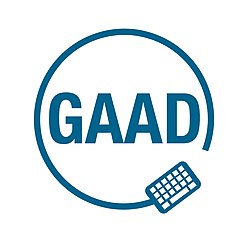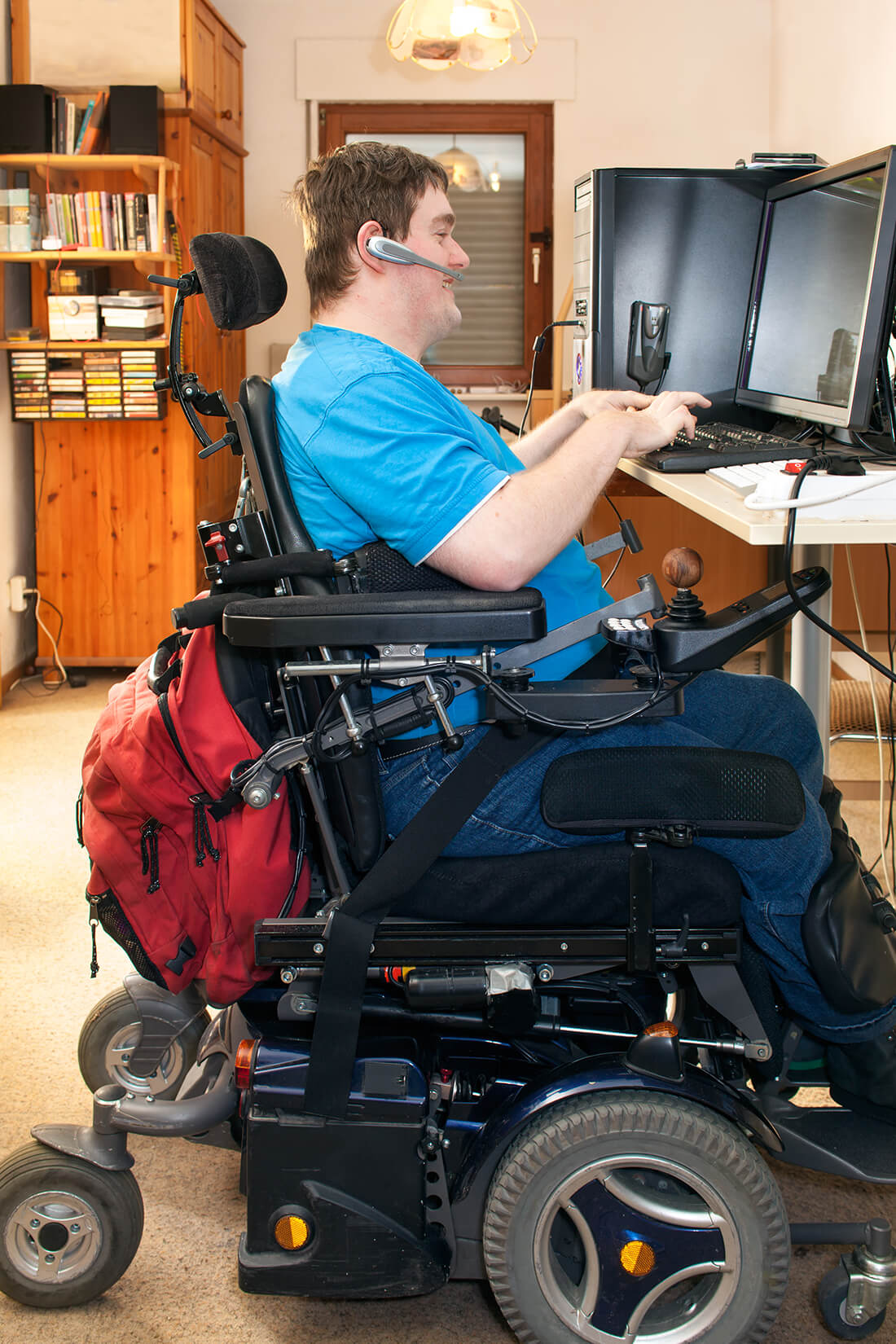Global Accessibility Awareness Day 2020

By Luke Hay|21 May 2020
Thursday marks the ninth Global Accessibility Awareness Day (GAAD).
GAAD is an awareness day focusing on digital access and inclusion for people with disabilities and impairments across the world.
It takes place on the third Thursday of May each year and provides a way for people to share their thoughts and learn more about accessibility. It’s a day for people to consider those with different access needs and to think about how technology can help to meet those needs.
What happens on GAAD?

On the day, there are numerous events planned which aim to help raise awareness and understanding of accessibility needs. This year over a hundred events are planned across the globe and will be delivered in the form of webinars, podcasts, and workshops. Thousands of people take part in coming together to discuss making technology more inclusive for everyone.
Why is it important?
Over 1 billion people worldwide have some form of disability and they are often overlooked when people design websites, apps, or other forms of interactive tech. This means that people with different access needs often face obstacles when trying to complete what should be straight-forward tasks online. The aim of the day is to raise awareness and to move towards removing as many unnecessary obstacles as possible.

Accessibility is not only relevant for those with permanent disabilities though. Making your website accessible also means that it can be used by people with temporary or situational disabilities too. For example, adding subtitles to your videos will help those with hearing impediments but will also be helpful for people who are in noisy rooms or just don’t want to turn the sound up if they are out in public.
Poor online accessibility affects millions of people
The following tweets are an example of the frustrations faced by disabled people every day with technology
Disabled people aren’t the edge case. Tech people are the edge case. We represent a small portion of the population and we’re in charge of designing and building. Too often we design for people exactly like us. @feather #a11y #InclusiveDesign #aeasea
— zeldman (@zeldman) March 6, 2019
Never been so stressed! #lostpassport WHY is EVERYTHING online, made so readily available digitally yet for me - it’s hugely inaccessible and stressful when I MOST need it. I’m incredibly frustrated & emotional, what an awful couple of days. #sorry #rant #feelingsorryformyself
— Molly Watt Talks (@MollyWattTalks) February 22, 2019
“Why coronavirus may make the world more accessible. For many people with disabilities, options like remote working have been needed for years..” #inclusion#disability #accessibility https://t.co/yuLEmGah2L
— Jenny Lay-Flurrie (@jennylayfluffy) May 14, 2020
Why is this year potentially more important than ever?
With the current health situation leading to lock-down situations in many countries across the world, it means that in a lot of cases people have no option but to make purchases, or find out information, online. This means that it’s more important than ever that everyone is able to complete those tasks online. It was, correctly, a consideration when launching the COVID-19 app here in the UK.
“The process to design and test the app involved members of the public and was aligned with accessibility guidelines, ensuring that the needs of all members of the public who could use the app were taken into account.”
The Department of Health’s Chief Digital Officer Dan West
How does Fresh Egg work with clients to ensure accessibility is taken seriously?
Most of our clients face web accessibility challenges at one point or another. It is not always easy to design a website that is usable for everyone, but steps need to be taken to ensure that they are as inclusive as possible.
At Fresh Egg, we use the term ‘inclusive design’ to describe what clients should be aiming for. This goes beyond some of the technical ‘box-ticking’ which is often associated with accessibility and also focuses on the practical usability of a website. While it is important that people strive to ensure that their websites are compliant with accessibility standards, such as the WCAG 2.0 rating system it is also important that test websites with real users.
We're not claiming to be world-leading experts in this field, but we do strive to help clients make their sites more usable for their whole audience. Hence the name 'inclusive design'.

“Having been on both sides of the fence, and now a wheelchair user of nearly 30 years, I speak from a position where I believe not enough has been done (or achieved) in the application of accessibility to all online. It still seems that disabled people are an after-thought in the design process. It comes across that organisations simply want to tick the compliance box and move-on, as against wanting to fully understand the true needs of the disabled community and making solutions accessible to all.
The Internet should be a level playing field, but sadly, the differences that exist in the physical world have been transferred online. It is hard for any able-bodied person to assume the persona of a disabled person and truly understand the difficulties faced with performing what would be classed as simple tasks. True accessibility can only be achieved when organisations take accessibility seriously and include disabled people when testing online solutions. Until that becomes the norm, full accessibility to all will never be achieved.”
Lee Colbran, Fresh Egg co-founder
We're here to help
Want some help ensuring that your website is as ‘inclusive’ as possible? Get in touch to find out how we can help.